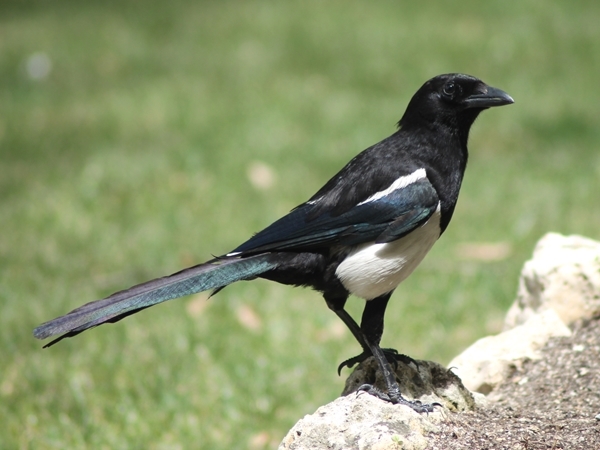
A NEW study has revealed a range of factors that cause a variation in predation by magpies on farmland songbirds.
Researchers from University of Exeter and the Game & Wildlife Conservation Trust (GWCT) placed 460 artificial nests on typical farmland in Warwickshire to study predator behaviour.
They found magpies were the most common predators, accounting for 70% of visits where the predator could be identified.
Nests inside magpie breeding territories were predated by magpies more often, especially late in the season when magpies themselves had young in their nests.
Intriguingly, some specific nest locations were repeatedly highly predated.
The findings come amid controversy over the rules governing which birds can be killed to protect wild birds, crops and livestock.
“This works suggests that, although most nest predators are magpies, not all magpies are nest predators,” said Dr Joah Madden, of the University of Exeter.
“The future challenge is to identify these problem individuals and accurately remove them.”
Dr Rufus Sage, who is head of lowland gamebird research at GWCT, said: “These results suggest that not all magpies are equally predatory.
“Predator removal could be more effective if management is targeted towards particularly predatory individuals, or locations at which predation rates are high.”
Tom Streeter, chairman of environmental charity SongBird Survival which commissioned the research, said: “We are delighted to have sponsored this important and, as it transpires, exceptionally timely research.
“SongBird Survival is very concerned about the significant adverse impacts that overabundant corvids can have on songbird populations, and this study helps further our understanding of the threat that some particularly predatory individuals pose.
“Moreover, the findings will help inform, better, the forthcoming wider reviews of general and class licensing due to be completed this year by both Natural England and Scottish National Heritage.”
The paper, published in the European Journal of Wildlife Research, is entitled: “Predation of artificial nests in UK farmland by magpies (Pica pica): interacting environmental, temporal, and social factors influence a nest’s risk.”
Notes to editors
The Game & Wildlife Conservation Trust – providing research-led conservation for a thriving countryside. The GWCT is an independent wildlife conservation charity which has carried out scientific research into Britain’s game and wildlife since the 1930s. We advise farmers and landowners on improving wildlife habitats. We employ more than 60 post-doctoral scientists and other research staff with expertise in areas such as birds, insects, mammals, farming, fish and statistics. We undertake our own research as well as projects funded by contract and grant-aid from government and private bodies.
For information, contact:
Eleanor Williams
Telephone: 07592 025476
Email: press@gwct.org.uk